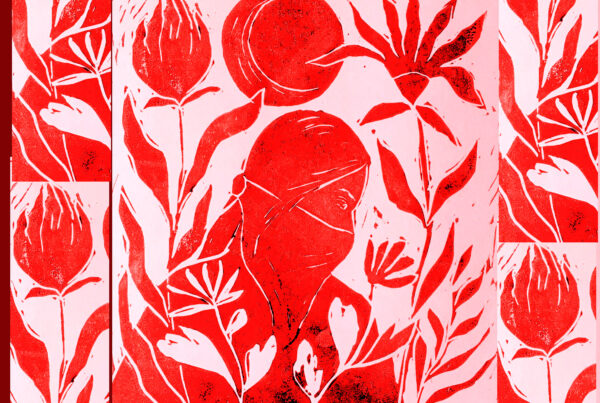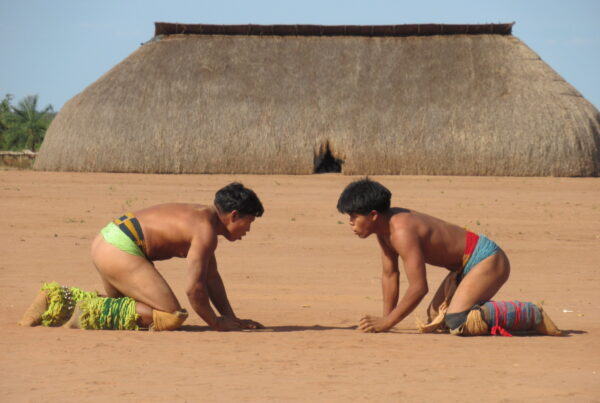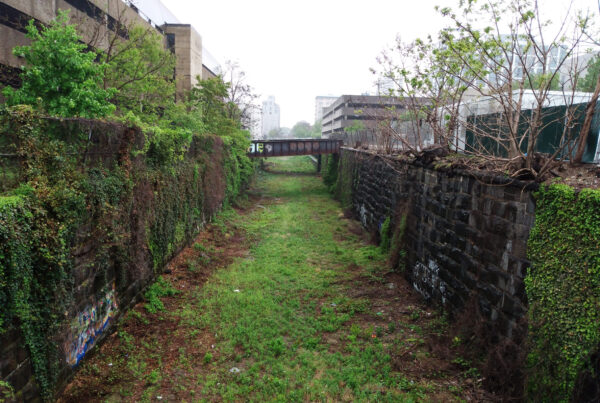In her commentary on Kallis’ and Swyngendouw’s conversation ‘Do Bees Produce Value?’, Irina Velicu reminds us that feminist theories have long argued that ‘value’ depends on evaluators: ‘nature’ has not been valued but rather produced (as non-value) in modern dualisms of thinking.

The terrifying experience of surviving a crocodile attack while canoeing alone in Kakadu National Park in Australia in 1985 inspired eminent environmental philosopher Val Plumwood to explore philosophical ideas about death within an ecological context. The canoe she was paddling is exhibited in the National Museum of Australia. Source: nma.gov.au.
The inspiring dialogue between Kallis and Swyngendouw reminded me of indigenous (women/gender) politics, which has long argued that nature has not been valued but rather devalued (see for example the work of Anzaldua, Guerrero or Gaard): history shows that the non-human category of ‘Nature’ has not only included ‘non-human’ gifts such as animals or oil, but also women, slaves, people of color, or more broadly the barbarians etc. These have been the broader but perpetual dualisms of Western modernity, as Plumwood argues. Therefore, Nature – from animal to female, from slave to savage, from body to emotion, from reproductive to private – only exists as a category in contrast to Culture and Reason (men, white, civilized, rational, free, public).
It is this process of Others’ de-valuation (or no-valuation) that allowed to give priority to privileged identities of Western modern civilization and that continues as imperialisms, colonial nationalisms, capitalisms. Nature’s categories have been produced as domains of intervention: these Natures (gifts of ‘nature’, women, ‘servants’ of globalization etc.) still have to be ‘discovered’, tamed, domesticated, educated, civilized, disciplined, trained, developed. Perhaps having such bodily experience of being (de)valued as ‘nature’, (eco)-feminist/gender/queer studies work precisely by starting from this problematic production of dualisms to point out the connections between the multiple layers of exploitation and oppression (see Warren and McClintock).
The ecological crisis also puts into perspective the limits of human-ness as a privileged category for thinking about life in general, since its life has usually meant death for others (broadly defined as ‘Natures’). Without ‘gifts of Nature’ there would not only be more workers’ exploitation; indeed, there would be no “civilization” or “development”. These ‘Natures’ make a great contribution to humanity’s life and well-being. But indeed, for this to happen, they have to be produced as such, of ‘no -value’ or no-other value, but sustaining Humans.
However, these Natures are not simple ‘forces’ to be used for more productivity; they are forms of life with vitalities and potentialities. Bees also work ‘for’ something in exchange: if they do not have flowers to pollinate, they die. They need (although not demand) something in return that cannot be money. Their work has to be rewarded with ‘care work’ on our part too; not only exploiting or harvesting but allowing and enabling the reproduction of their life. Indeed, the bees and the horses cannot demand recognition, they cannot make legal claims, but it is not because they ‘lack language’ (another way of boosting human ‘intervention). We see them as ‘lacking’ something, when in fact we produce them as such, with ‘non-life’, i.e. non-social life. For the broader paradigm of civilization and development, they do not exist as “life” or ‘beings’.
For me, the mystery is not ‘surplus-value’ but how, after so much ‘Enlightenment’, there are people who still practice talking to the wind or the mountain, or who remember that the horse or the bee speaks to them, working side by side in a somewhat parallel universe of “Earth Beings’. These practices too are becoming endangered species (see Dakota recently). The small-scale beekeepers I met speak of the bee as a universe whose care for is a different ‘art of communication’, besides hard work. Perhaps the revolutionary force of the ‘bees’ is that they may continue to give ‘free-gifts’ even if they die in the process.
In the prevailing liberal democracy system, the terrifying images of children in Congo or Guatemala result in ‘demands for human rights’, while the underlying logic of economic growth is often not questioned. Class struggle and competition do not manage to ‘reform’ a civilization based on thinking that Some are entitled to ‘Others’. Certainly, there could be more awareness that the Walmart ‘good-way of life’ is accessible because of such dualisms of thinking, so deeply rooted that they become forgotten. There is nothing ‘superior’ in a culture that makes ‘Nature’ inferior only to be able to indulge in addictions of ‘good-life’ for humans as Gods.
Saying that capitalism does not value ‘gifts of nature’ per se may also mean that value itself is not important (i.e. cannot be ‘objectively’ defined). Value exists only through the imaginary and reactive forces of evaluators, as Deleuze argues. We may indeed be right to think that changing the evaluators (from a handful of capitalists to collectives) would revolutionize valuation per se by politicizing and democratizing it. But the ‘value’ of ‘valuation’ may reside only in its implications or consequences, which would still remain unpredictable and open to resignification. Whether it would allow for the equalitarian reproduction and proliferation of ‘life’ and ‘livable’ conditions, and beyond the human self-referential category is an ongoing matter of collective political rethinking, renegotiation and work.








a noble essay with much good food for thought. while we may not be able to change the System, we can do our best to objectively value what sustains us…perhaps by imagining how much we would miss it if it was to disappear. yet again, an egocentric and short-sighted orientation, but a start of some sort, nonetheless.